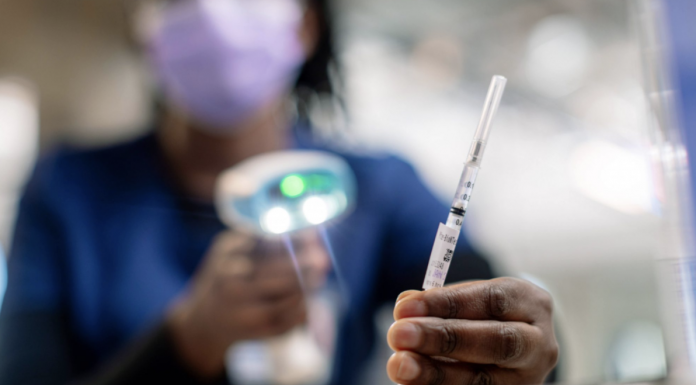Choosing the best vaccine is simple; just take the first one offered to you, says Mayo Clinic
PLUS: What vaccine-hesitant Americans are saying now
April 2, 2021
MAYO CLINIC NEWS NETWORK – Vaccination is an important step in the fight against the ongoing COVID-19 pandemic. Being vaccinated for COVID-19 protects you from becoming infected and possibly infecting those around you.
COVID-19 vaccines that have been approved by the Food and Drug Administration are being distributed by local states and communities, and they are free. If you are eligible to be vaccinated for COVID-19, you are encouraged to do so as soon as possible.
“It is so important to get this vaccine when it’s offered to you,” says Dr. Melanie Swift, co-chair of the Mayo Clinic COVID-19 Vaccine Allocation and Distribution Work Group. “Even if you’re healthy, even if you might not be at risk for complications from COVID-19 yourself.”
Dr. Swift says being vaccinated for COVID-19 offers protection for you and others.
“Our society really needs everyone to be vaccinated so that we can stop transmission. And that means the virus stops replicating. It stops mutating and making these variants that keep coming up, and we can have safe communities and start going back to normal life. These vaccines are our quickest and safest way to get immunity so we can go back to normal life and end the pandemic.”
Watch: Dr. Melanie Swift talks about getting the COVID-19 vaccine.
Melanie Swift, M.D./COVID-19 Vaccine Allocation and Distribution/Mayo Clinic
If you are unsure about your eligibility or you want to wait for others to be vaccinated, Dr. Swift offers some thoughts.
“If you’re offered vaccine, you’re eligible. Get the vaccine. It is really not a personal ethics test. If you’re offered vaccine, the right answer is: ‘Yes, thank you. I’ll take the vaccine.’ People should not feel guilty about getting vaccinated.”
Contact your state health department for more information on its plan for COVID-19 vaccination.
Information in this post was accurate at the time of its posting. Due to the fluid nature of the COVID-19 pandemic, scientific understanding, along with guidelines and recommendations, may have changed since the original publication date.
For the safety of our patients, staff and visitors, Mayo Clinic has strict masking policies in place. Anyone shown without a mask was either recorded prior to COVID-19 or recorded in a non-patient care area where social distancing and other safety protocols were followed.
For more information and all your COVID-19 coverage, go to the Mayo Clinic News Network and mayoclinic.org.
Learn more about: Tracking COVID-19 and COVID-19 trends.

Fewer people take a ‘wait and see’ approach to COVID-19 vaccine — here’s what changed their minds
March 22, 2021 By Meera Jagannathan
MARKETWATCH – Though access to COVID-19 vaccines remains limited, polling suggests a slice of Americans want to “wait and see” how the shots work for other people before they get vaccinated themselves.
But experts say that getting the vaccine as soon as it’s available to you will be vital for protecting yourself and others, stopping virus variants in their tracks, and resuming some level of normalcy.
The share of people in this “wait and see” category has declined over time, according to polling by the health-policy think tank Kaiser Family Foundation, dropping from 39% in December to 31% in January.
In February, the most recent survey, it stood at 22%. This happened alongside a gradual increase in the share of respondents (most recently 55%) reporting they’d either gotten at least one dose or would get the vaccine as soon as possible.
Black adults (34%), young adults aged 18 to 29 (33%), Hispanic adults (26%), adults without a college degree (25%), and non-health essential workers (25%) had the highest shares of respondents in the wait-and-see group.
The most common concerns in the wait-and-see cohort were the potential for serious side effects; the possibility of getting COVID-19 from the vaccine, which health authorities say cannot happen; the prospect of missing work due to side effects; and the potential need to pay out of pocket for the vaccine, though the vaccines are free.
A quarter of wait-and-seers said a one-dose vaccine would make them more likely to get their shot.
Susan Lopez, a hospitalist affiliated with Rush University Medical Center in Chicago, says community members have raised questions about waiting to get vaccinated against COVID-19 during every one of the 12 vaccine-outreach sessions she has done.
“I get a lot of questions about long-term effects, like months and years later on, especially with regards to mRNA vaccines since they keep hearing it’s new technology,” Lopez told MarketWatch … Read more.



